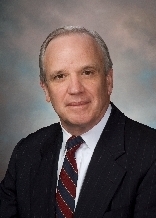August 5, 2001
The scientific and medical advances that prompted the debate over stem cell research also created a cruel irony. It is the same irony that can be seen in the improvements in medical treatment which have effectively extended life.
Human embryos are “available” for stem cell research because laboratories have produced an “oversupply” for in vitro fertilization. As science and medicine developed new ways to enable women who would otherwise have no chance to give birth to bear children of their own, the disciplines have left us with difficult ethical decisions involving “byproducts” of the new technology.
By allowing people to survive injury and illness that in years past generally meant certain death, science and medicine have left us with far too frequent ethical dilemmas about what to do with patients on life support. Even the prolonged lives that people in the West enjoy because of dramatic improvements in science and medicine are accompanied by increasing pressure to legalize euthanasia.
Our ethical framework has been strained by these developments. A people caught up in constant progress and technological advancement, as most Western societies are, will be easily tempted by the promise of medical improvements. Westerners tend not to think about the ethics of the undertaking or its potentially adverse consequences — until its too late.
But hold on! The U.S. House of Representatives voted last week to outlaw human cloning. If this statute is ultimately enacted, Americans may never have to wrestle with the ethical problem of what to do with the embryos produced in cloning research and commercial applications of that research.
We can only imagine what one House member called the “ghoulish” consequence of cloning. It’s unfortunate we didn’t fully consider the consequences of in vitro fertilization before rushing to embrace it.
The ease with which we play God when we produce human embryos in a petri dish has numbed our consciences. We don’t stop to question whether the embryo is human life before casually discarding the “excess.”
Is the frozen human embryo a life or isn’t it? If not, at what point do we give life protection? At what point do we cease to give life protection?
The ethical questions at both ends of life are not fundamentally different. Accepting the destruction of pre-born life and legalizing euthanasia are opposite sides of the same coin.
If we cheapen life at the two ends, we devalue life between them. The rationalizing that makes acceptable the destruction of an embryo or a fetus because he or she is not a fully developed person is not unlike the rationalizing that makes euthanasia acceptable. We define the subject as less than a “full” life and justify terminating it.
Once we embrace this kind of reasoning, it’s not much of a leap to treat “defective” human beings as less than “full” lives warranting legal protection.
For good or ill, this question of life and when it should be protected has suddenly become a prominent issue in Virginia’s gubernatorial campaign. The candidates have taken opposing positions on stem cell research and end-of-life questions. Now that voters are being asked to choose, the outcome may tell us a great deal about who we really are and what we value.
 Mr. McSweeney practices law in the City of Richmond where he was born in 1943. In January 2009, he convened a meeting of more than 200 Virginians, which led to the formation of Restore the Founders’ Vision, a non-profit civic education initiative. He has four adult children. He resides with his wife, Wendy, in Powhatan County, Virginia.
Mr. McSweeney practices law in the City of Richmond where he was born in 1943. In January 2009, he convened a meeting of more than 200 Virginians, which led to the formation of Restore the Founders’ Vision, a non-profit civic education initiative. He has four adult children. He resides with his wife, Wendy, in Powhatan County, Virginia.
